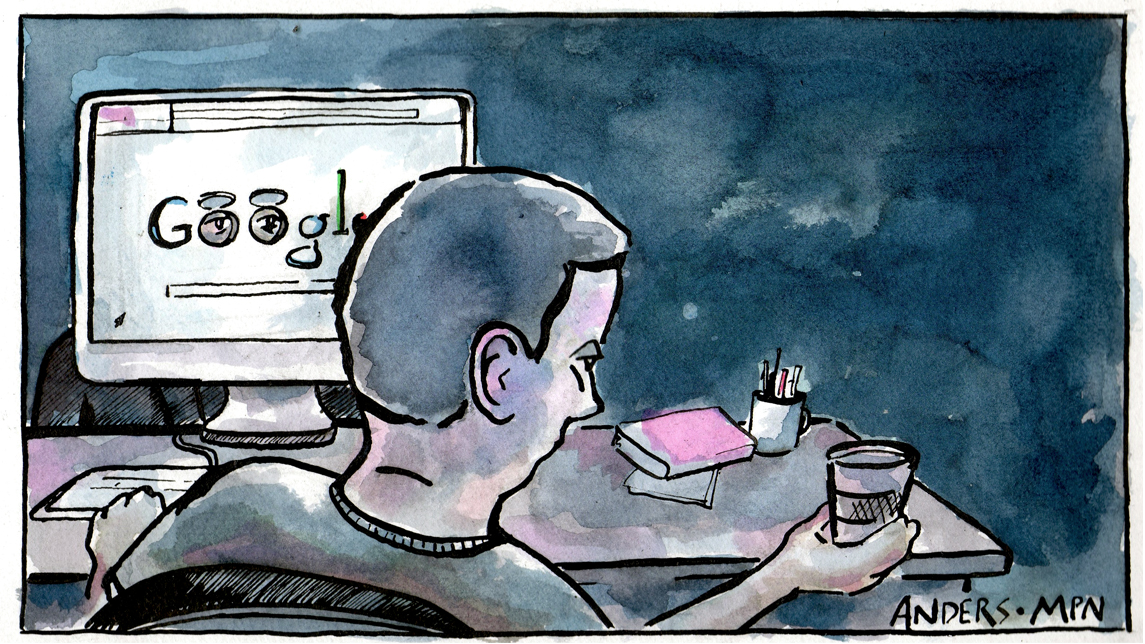
Privacy advocates were dealt a major blow on July 18, when a federal judge in New York ruled that law enforcement has the legal authority to search the entire email account of an unnamed individual who police believe was involved in a money laundering scheme.
Google is now legally required to hand over the entire contents of the unnamed individual’s Gmail account — including all emails sent, received and drafted, all contacts, and other information — to federal prosecutors.
In his 23-page ruling, U.S. Magistrate Judge Gabriel Gorenstein wrote that email accounts should be treated like hard drives when it comes to search and seizure principles. In other words, Gorenstein believes law enforcement should be able to go through an individual’s entire email account if prosecutors can demonstrate probable cause showing a “sufficient chance of finding some needles in the computer haystack.”
«For example, in a drug investigation, it might be obvious based on information from an informant or other source that emails referring to the purchase or importation of ‘dolls’ refers to cocaine, but investigators might only learn as the investigation unfolds that a seemingly innocuous email referring to purchase of ‘potatoes’ also refers to a cocaine shipment,» the judge wrote.
This decision is significant because U.S. courts have historically ruled against federal prosecutors’ requests to search an email account in order to find incriminating evidence, citing the Fourth Amendment, which protects Americans from unreasonable search and seizure.
Given that there has been a rise in the number of requests from law enforcement officials in recent years for access to information hosted by companies such as Google and Yahoo, privacy advocates have expressed concern that this case may affect future money laundering and other financial crime cases, or even other types of crimes, as Gorenstein wrote in his ruling that those courts that did not rule in favor of law enforcement ignored all case law giving police the legal ability to comb through paper documents to determine whether a crime had been committed.
Hanni Fakhoury, an attorney for the Electronic Frontier Foundation, said Judge Gorenstein is essentially saying that the Fourth Amendment grants police officers legal room to search irrelevant data in order to find relevant data. But the problem many privacy advocates see with this interpretation, especially in the Digital Age, is that law enforcement is able to retain large amounts of data for an extended period of time.
Gorenstein’s interpretation of the Fourth Amendment is also shocking, given that just last month the U.S. Supreme Court ruled that police cannot just search an individual’s cellphone without first obtaining a warrant.
“The Supreme Court’s decision reinforces the notion that digital data can’t be equated with physical items like papers because it contains so much more information, in terms of both volume and quality,” Fakhoury said. “When police enter a home to search for, say a shotgun, they can’t look at places where the weapon is unlikely to be found.
“But these broad digital searches allow the government to search through everything because the government believes the evidence could be anywhere. So that’s problematic in my mind,” he said.
Glenda Toma agrees. In a piece in the Wall Street Journal on Tuesday, she says that the “diminishment of digital privacy is a startling trend.”
“When a warrant is authorized for a physical entity, such as a house or a car, there are stipulations as to what can be searched and where,” Toma pointed out. “It has been rare for a judge to grant a so-called general warrant, or the unrestricted permission to search and seize, since it potentially contravenes the Fourth Amendment. So why do these rules not apply to digital privacy?”
In his ruling, Gorenstein did not outline a specific timeframe in which law enforcement officials would be able to search the individual’s emails, nor did the judge say how long law enforcement would have access to the email account — reasons why privacy advocates view this case as just one more reason why regulating digital privacy urgently needs to be addressed from a legal standpoint.

